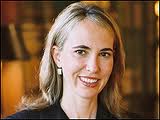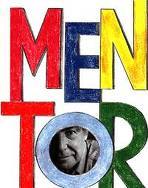“Ephesians 4” Call To Equip The Saints For The Work Of Service As A Pastor/Shepherd:
 I believe the five fold passions and points of view are in every believer in Jesus Christ since the Holy Spirit of Jesus Christ indwells them. So how do we allow the artesian well of the Holy Spirit to surface the pastoral spirit and gifts that are in all believers? That is the calling of the five fold ministry of the Church.
I believe the five fold passions and points of view are in every believer in Jesus Christ since the Holy Spirit of Jesus Christ indwells them. So how do we allow the artesian well of the Holy Spirit to surface the pastoral spirit and gifts that are in all believers? That is the calling of the five fold ministry of the Church.
If it weren’t for the spiritually birthing process of the pastor/shepherd, most of us would never have grown in Jesus Christ with the goal of “maturing into the image of Jesus Christ.” We needed “a spiritual mommy or daddy” to model and guide us through this new walk of faith in Jesus. That pastor/shepherding spirit is in all who believe in Jesus Christ as their savior and Lord. How can we, the 21st century Church allow the creative pastoral spirit to arise in believers, aid in nurturing it, caring for it, developing it, and then releasing it to produce fruit for the Kingdom of God?
I certainly don’t have all the answers, but encourage you to ask the creative Holy Spirit of Jesus Christ to give you “revelation” of who He is and how to show that to others. I only offer a few suggestions:
 Begin With The Gift Of Hospitality: Just open up your home and practice the scripture, “I was a stranger, and you invited me in…” (Read my book I Was A Stranger And… Get out of print copies on Amazon.com for pennies!) When you make people feel like part of the family, they become comfortable. If they are new converts, you can model the Christian walk, help them practice their new faith, walk out spiritual principles in their daily lives, and build a bond that is special in the Family of God. I opened my apartment when I was single and got results! Just as your home may be a comfortable atmosphere to share the gospel, your home is an excellent atmosphere in developing a walk in faith with “new” family members.
Begin With The Gift Of Hospitality: Just open up your home and practice the scripture, “I was a stranger, and you invited me in…” (Read my book I Was A Stranger And… Get out of print copies on Amazon.com for pennies!) When you make people feel like part of the family, they become comfortable. If they are new converts, you can model the Christian walk, help them practice their new faith, walk out spiritual principles in their daily lives, and build a bond that is special in the Family of God. I opened my apartment when I was single and got results! Just as your home may be a comfortable atmosphere to share the gospel, your home is an excellent atmosphere in developing a walk in faith with “new” family members.
 Hanging Out, Listening, Caring, & Empathy Makes A Good Bar Tender: Often I think of Bars as “secular churches” and bar tenders as their “pastors”. Bar tenders don’t judge; they will sell a beer to anyone. While wiping glasses they are great listeners, showing empathy, often very caring. When you cry in your beer, they listen, nod, showing care and concern. They only give advice to those who seek advice. Those who frequent the bar become like family. The old TV sitcom Cheers so effectively showed that aspect as its viewers were drawn into their family, knowing the characters as if friends. When someone comes to your home do you stay nonjudgmental no matter what or who they are, listen, show empathy, care, and concern, and only give advice and opinions when asked? We, as pastor/shepherds, who to have more to offer than bars must impact our culture. Ask the Holy Spirit how you can be hospitable to everyone and anyone.
Hanging Out, Listening, Caring, & Empathy Makes A Good Bar Tender: Often I think of Bars as “secular churches” and bar tenders as their “pastors”. Bar tenders don’t judge; they will sell a beer to anyone. While wiping glasses they are great listeners, showing empathy, often very caring. When you cry in your beer, they listen, nod, showing care and concern. They only give advice to those who seek advice. Those who frequent the bar become like family. The old TV sitcom Cheers so effectively showed that aspect as its viewers were drawn into their family, knowing the characters as if friends. When someone comes to your home do you stay nonjudgmental no matter what or who they are, listen, show empathy, care, and concern, and only give advice and opinions when asked? We, as pastor/shepherds, who to have more to offer than bars must impact our culture. Ask the Holy Spirit how you can be hospitable to everyone and anyone.
 The Pastoral/Shepherding Spirit Is In Investment: As a public school teacher, I look at every student as an investment in the future of America, the future of our local community, and the future of each and every life of every student that comes under my care and influence. The Church must look at each new believer as an “investment” in the Kingdom of God. Your nurturing, caring, counseling, talk with, listening to, aiding, and developing of every believer placed into your care to help grow into maturity, that is in to the fullness of Jesus Christ, is a monumental calling of time, patience, sacrifice, and care that only one with a pastoral/shepherding spirit can handle through the leading of the Holy Spirit. The Price: Time! Being there 24/7, when needed, is a demand that new Christians pose. Jesus spent 3 years teaching pastoral skills to his disciples by walking with them daily. Most of the time they fumbled, fell, look like men lacking faith, fighting amongst each other, yet Jesus knew what he was doing “in their development”, for he “nurtured” and “developed” them into becoming the pillars of the Kingdom of God. They were quite an investment! If you are a Christian, take time to thank those “spiritual parents” who helped you are your spiritual journey, your faith walk, for they were truly five fold pastors/shepherds.
The Pastoral/Shepherding Spirit Is In Investment: As a public school teacher, I look at every student as an investment in the future of America, the future of our local community, and the future of each and every life of every student that comes under my care and influence. The Church must look at each new believer as an “investment” in the Kingdom of God. Your nurturing, caring, counseling, talk with, listening to, aiding, and developing of every believer placed into your care to help grow into maturity, that is in to the fullness of Jesus Christ, is a monumental calling of time, patience, sacrifice, and care that only one with a pastoral/shepherding spirit can handle through the leading of the Holy Spirit. The Price: Time! Being there 24/7, when needed, is a demand that new Christians pose. Jesus spent 3 years teaching pastoral skills to his disciples by walking with them daily. Most of the time they fumbled, fell, look like men lacking faith, fighting amongst each other, yet Jesus knew what he was doing “in their development”, for he “nurtured” and “developed” them into becoming the pillars of the Kingdom of God. They were quite an investment! If you are a Christian, take time to thank those “spiritual parents” who helped you are your spiritual journey, your faith walk, for they were truly five fold pastors/shepherds.
 Practicality - Being Real Rather Than Religious: Being an effective pastor/shepherd is one willing to drop their “religiousity” to become “real”. Changing a flat tire without swearing is more effective than quoting scripture to the tire. People want “real” faith exemplified through “real” people, not through people with religious facades. Some of the best ways to disciple someone is by just being practical. Help someone learn how to get a job, write a proper resume, and practice an interview. Teach males in their 20’s how to properly respect women, do the right things to impress them, serve them, show care for them, not dominate and be macho about it. Teach females in their 20’s how to be attractive physically without being provocative or a stumbling block, how to take care of their home and later possibly a family, how to develop self worth, etc. These are good pastoral skills. Just be real and practical.
Practicality - Being Real Rather Than Religious: Being an effective pastor/shepherd is one willing to drop their “religiousity” to become “real”. Changing a flat tire without swearing is more effective than quoting scripture to the tire. People want “real” faith exemplified through “real” people, not through people with religious facades. Some of the best ways to disciple someone is by just being practical. Help someone learn how to get a job, write a proper resume, and practice an interview. Teach males in their 20’s how to properly respect women, do the right things to impress them, serve them, show care for them, not dominate and be macho about it. Teach females in their 20’s how to be attractive physically without being provocative or a stumbling block, how to take care of their home and later possibly a family, how to develop self worth, etc. These are good pastoral skills. Just be real and practical.
 Release The Pastor/Shepherd: The worst thing to do after training or equipping someone is then to stifle their vision, their enthusiasm, their drive, their passion, and just let them sit back. RELEASE THEM TO SERVE! You have equipped the pastor/teacher for the “works of service”, so let them serve! Let them do what drives them: Nurture, develop, care, aide, basically serve others in an effort to help them mature into the likeness of Jesus Christ. Don’t place restraints on them that the other four in the five fold could do for them. They need not have to birth, teach, give prophetic insight, or see over new converts. The passions of the others can aide them in the development of these baby Christians. Release them. Will we ever think one is “ready” for ministry? Probably Not; will they make mistakes? Yes, of course, we all do, but the evangelist will energize those with pastoral callings through their excitement for birthing, the teacher to teach truth into the pastor/shepherd’s life, the prophet continually refreshing the pastoral/shepherding spirit, and the apostle to give proper oversight, “seeing over” what and how the Holy Spirit is doing in the pastor/shepherd’s life. The pastor/shepherd will submit to the ministry of the other four as they minister to him bringing proper accountability in his/her life.
Release The Pastor/Shepherd: The worst thing to do after training or equipping someone is then to stifle their vision, their enthusiasm, their drive, their passion, and just let them sit back. RELEASE THEM TO SERVE! You have equipped the pastor/teacher for the “works of service”, so let them serve! Let them do what drives them: Nurture, develop, care, aide, basically serve others in an effort to help them mature into the likeness of Jesus Christ. Don’t place restraints on them that the other four in the five fold could do for them. They need not have to birth, teach, give prophetic insight, or see over new converts. The passions of the others can aide them in the development of these baby Christians. Release them. Will we ever think one is “ready” for ministry? Probably Not; will they make mistakes? Yes, of course, we all do, but the evangelist will energize those with pastoral callings through their excitement for birthing, the teacher to teach truth into the pastor/shepherd’s life, the prophet continually refreshing the pastoral/shepherding spirit, and the apostle to give proper oversight, “seeing over” what and how the Holy Spirit is doing in the pastor/shepherd’s life. The pastor/shepherd will submit to the ministry of the other four as they minister to him bringing proper accountability in his/her life.
Church, let equip, nurture, care, then release, while continuing serve the pastor/shepherd bringing accountability, and we see a “new day” in a “new way” that the Church does church!











































